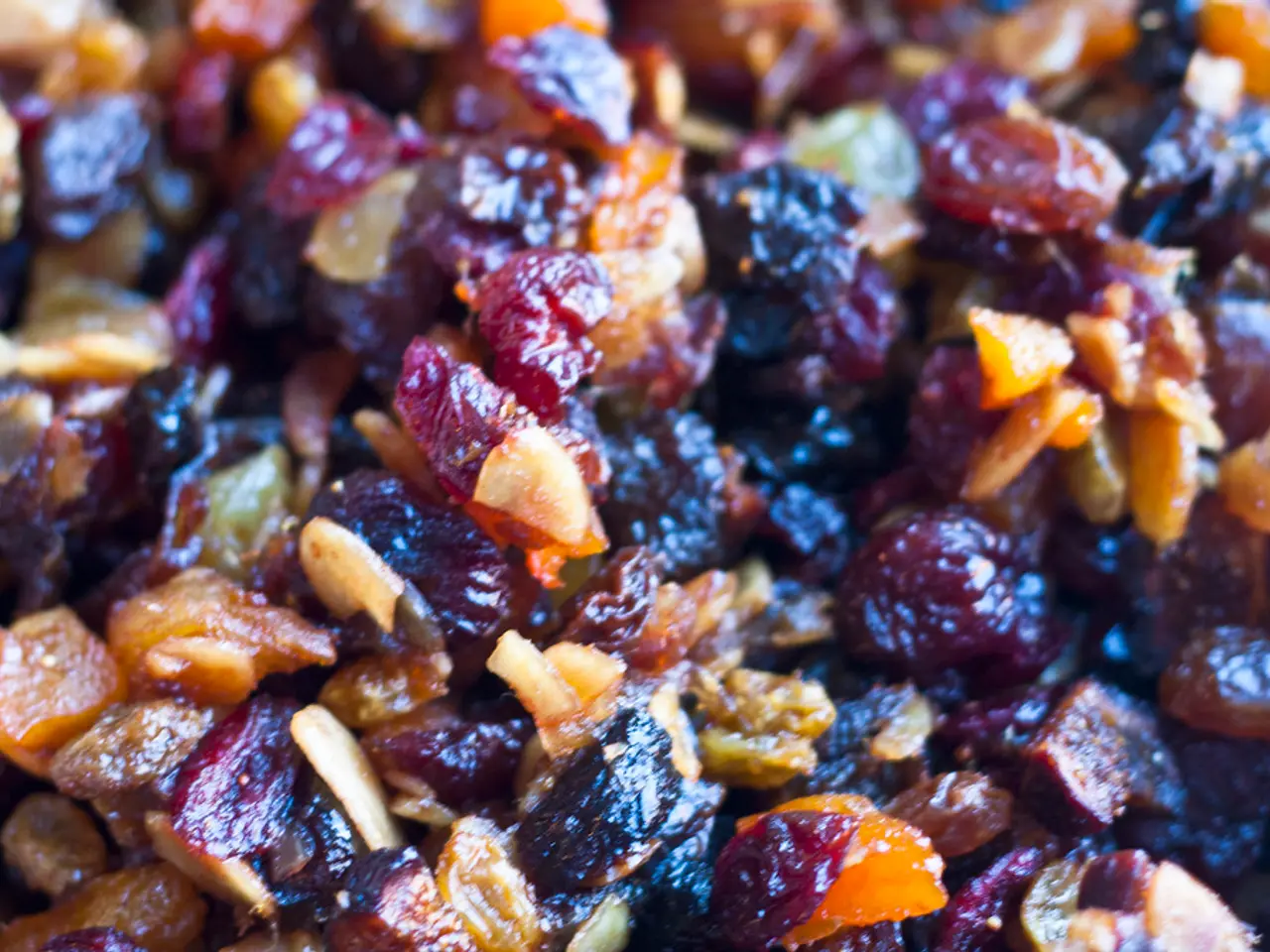Vegan Deficits: Identifying Them and Preventive Measures
In recent years, vegan diets have gained popularity as a health-conscious choice. However, it's essential to be aware of potential nutrient deficiencies that can arise from a plant-based lifestyle. Here's a breakdown of some common nutrients to focus on for a balanced vegan diet.
Firstly, Vitamin B12 is exclusively found in animal products, making it crucial for vegans to rely on supplements or fortified foods like nutritional yeast and fortified plant milks. A deficiency in Vitamin B12 can lead to neurological damage and anemia, with symptoms including tiredness, weakness, and difficulty remembering [1][2][5].
Iron, another essential nutrient, is found in plant foods but is less bioavailable than heme iron from meat. Vegans can improve absorption by consuming vitamin C-rich foods alongside iron-rich plants such as legumes, tofu, and dark leafy greens [2]. Vegan sources of iron include nuts, dried fruits, beans, lentils, spinach, peas, iron-fortified cereals, and broccoli, brussels sprouts, and kale [2][5].
Calcium is less abundant or less bioavailable in plants compared to dairy. Vegans are prone to deficiencies unless they consume fortified plant milks, tofu, almonds, and calcium-rich greens like kale and bok choy [2][5].
Omega-3 fatty acids in vegan diets come from ALA (alpha-linolenic acid) in flaxseeds, walnuts, and chia seeds. However, the conversion to the active forms DHA and EPA is inefficient. Algae-based supplements provide direct DHA/EPA suitable for vegans [2][3].
Zinc absorption is also lower in plant foods, so pumpkin seeds, legumes, and nuts are important sources to prevent deficiency [2].
Vitamin D can be low in vegan diets, especially without sun exposure; fortified foods and supplements are often needed, particularly in critical phases like pregnancy and childhood [5].
To prevent these deficiencies, vegans should focus on consuming a variety of protein-rich plant foods such as beans, lentils, tofu, tempeh, seitan, and combining complementary proteins (e.g., rice and beans) to ensure complete amino acid intake [1][2][3]. Additionally, incorporating fortified foods like plant milks, nutritional yeast, cereals, and spreads for vitamin B12 and calcium [1][5], and taking vitamin B12 supplements regularly [1][5], are key.
Moreover, ensuring vitamin D intake through fortified foods or supplements, especially in low sun exposure areas [5], and incorporating zinc-rich plant foods such as pumpkin seeds, nuts, and legumes consistently [2], are important practices for maintaining a balanced vegan diet.
In sum, while vegan diets can be nutritionally adequate and healthful, careful planning, use of fortified foods, and appropriate supplementation are key to avoiding common nutrient deficiencies and maintaining long-term health [1][2][3][5].
- Vegans need to be mindful of Vitamin B12 deficiencies, as it's found only in animal products, and may require supplements or fortified foods.
- For a balanced vegan diet, incorporating Vitamin C-rich foods with iron-rich plants like legumes, tofu, and dark leafy greens can improve iron absorption.
- Calcium deficiencies can be prevalent in vegan diets, and fortified plant milks, tofu, almonds, and calcium-rich greens like kale and bok choy are recommended sources.
- Omega-3 fatty acids in vegan diets primarily come from ALA sources like flaxseeds, walnuts, and chia seeds; however, direct DHA and EPA from algae-based supplements are more suitable for vegans.
- Zinc absorption is generally lower in plant foods, so it's important to consume pumpkin seeds, legumes, and nuts to prevent deficiencies.
- Vitamin D deficiencies can be common in vegan diets, especially in low sun exposure areas, and fortified foods or supplements are necessary, especially during critical phases like pregnancy and childhood.




